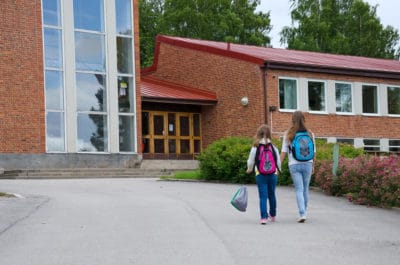

There was once a high school student with a 1.6 grade point average who was crazy enough to think he was college material. Fast forward 10 years later, not only did this student graduate college with honors, he went on to pursue a master’s degree in school counseling.
This same student received three scholarships and was recognized by his fraternity on the international level for his academic achievement while in graduate school. Despite having a low grade point average, this student found the fortitude and perseverance to achieve and accomplish goals he never dreamed of.
I know this story so well because the student I am writing about is me. When I share my story, I am often asked how I was able to change my trajectory. The answer is simple: I had a teacher who was crazy enough to believe I could do it.
I had no idea that my English III teacher in high school would serve as my beacon of hope, my safe space, and my cheerleader when I thought college would be nothing more than a hope. As I reflect on the impact my teacher made in my life, there are four things that stand out. Here are four strategies that educators, parents, and other education stakeholders can implement to support students who are struggling to matriculate through school.
Help students discover their ‘why’
If students are unsure as to why they are in school and why their classes are important, there is a chance that they are or will struggle to see the value in their class assignments. Some students know their why and/or are self-motivated enough to stay engaged in class.
However, it is vital to remember the student experience is not linear. In order to best support our students, we must be intentional, innovative, and willing to help students explore what is important to them. Once students explore and solidify why school is important to their future and purpose, even if their assignments are not interesting to them, they can view their assignments as steppingstones that will help elevate them to their calling in life post-graduation.
Create a plan of action
A plan of action is a helpful document that will detail the steps that a student needs to take to achieve their overall goals in life. Discovering their why is vital. However, without a plan to help them to get to their why, it will be nothing more than a dream. They have to take steps to turn their personal “why” into a reality.
This tangible resource can introduce students to the concept of accountability. By doing so, you can refer to the plan of action if you see that they are not doing what was discussed in the plan. This helps introduce them to responsibility without making them feel attacked since the plan was created with a trusted adult.
Creating a plan of action will show the student that you are invested and willing to take the time to help them become successful. Once a plan is created, they will know how to navigate it in order to achieve their goal. This will also help students understand what and how goal setting works. This will be helpful as they matriculate through school and life in general.
Check in with students
To help maintain the relationship, check ins are strongly recommended. Checking in with students will not only show that the person they are working with is invested in their well-being, but it also gives them a space to express their feelings and concerns. Conducting check ins on a consistent basis will help build rapport and trust within the student-adult relationship.
For some kids, these check ins are the only time that they have a space to share what is on their mind. When doing these check-ins, it is important to tell the student that if the adult is made aware of any abuse, self-harm, or dangerous home situations, these concerns must be shared with the proper authorities. That could make the child unsure whether they should share certain information due to fear that they might get somebody in trouble. If a student appears hesitant, reminding them that you care about them and want to provide any additional resources and assistance needed will be helpful. If this makes you nervous, role playing can help prepare for the conversation.
Encourage your students
Encouragement can go a long way in a student’s life. Once a student feels comfortable with a trusted adult, they will share insecurities that they might have. These insecurities can span from physical attributes to their academic performance.
As mentioned earlier, the student experience is not linear. Some students go all day, and in some cases weeks, without hearing any affirmations or kind words in general. Sending your student positive quotes will remind them that you support them and are invested in their wellbeing.
During the K-12 years, students are building and laying the foundation of their adult lives. Helping students understand and discover their purpose will help them for years to come. A plan of action will help students set goals and invest in their future. Checking in with students will create a space where the trusted adult can help create a safe space while gaining information to personalize their approach when working with their specific student.
When students know that someone believes in them, it gives them the confidence that they can achieve their goals. As students graduate and become members of society, they may not remember everything that they learned. But they will remember the impact of people in their lives that helped them grow into the best version of themselves. As educators and stakeholders, let’s use our platform to positively influence our students.
This article is dedicated to Dr. Jeanne Dyches. Thank you for believing in me when it felt like no one else did. My hope is that I can positively impact students’ lives the way you positively impacted mine. I am forever indebted to you.


